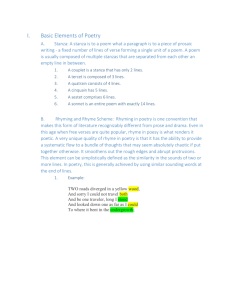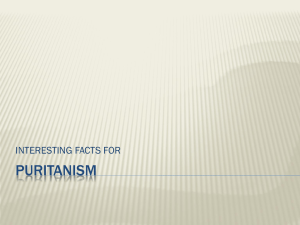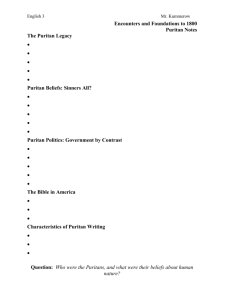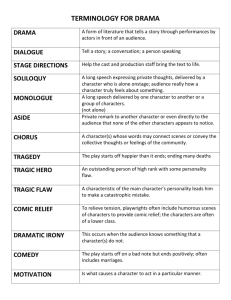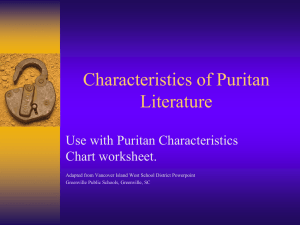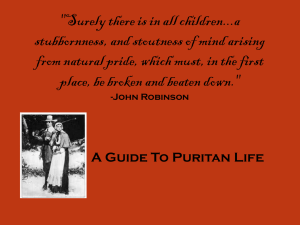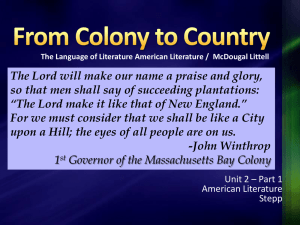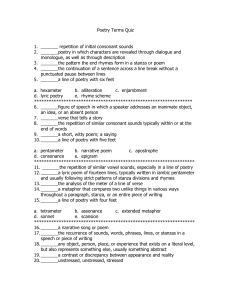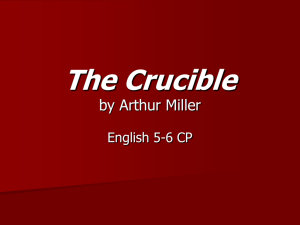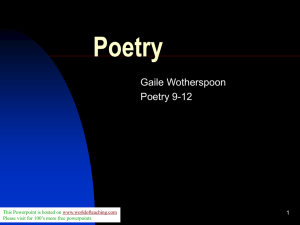Puritans wrote in what is called Puritan Plain Style
advertisement
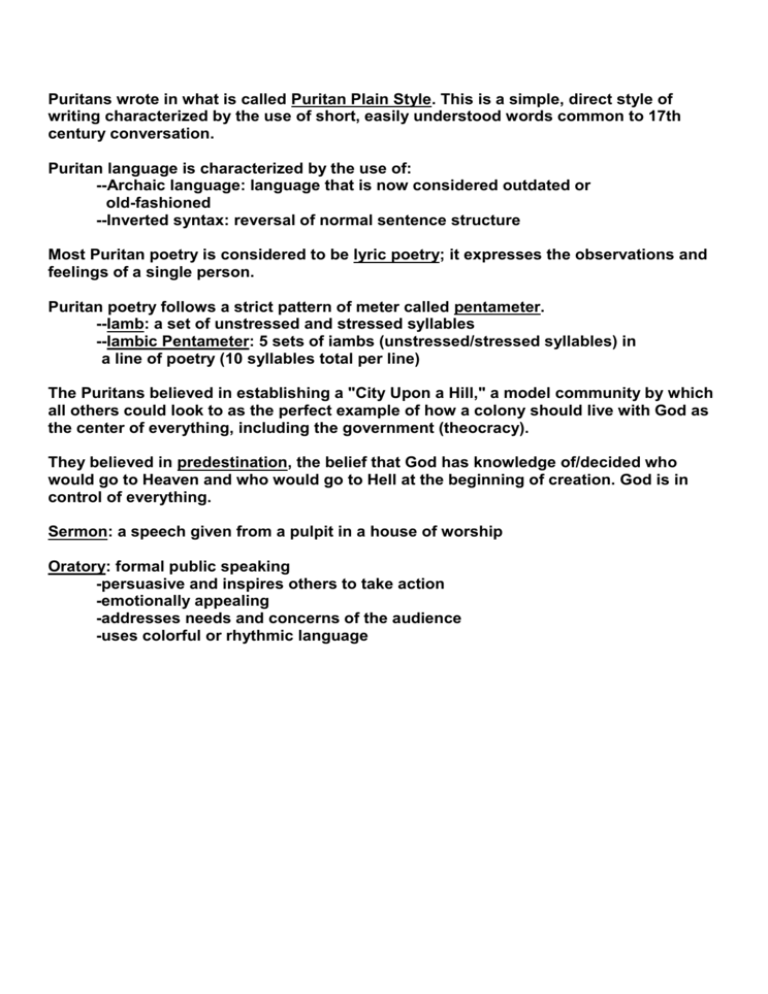
Puritans wrote in what is called Puritan Plain Style. This is a simple, direct style of writing characterized by the use of short, easily understood words common to 17th century conversation. Puritan language is characterized by the use of: --Archaic language: language that is now considered outdated or old-fashioned --Inverted syntax: reversal of normal sentence structure Most Puritan poetry is considered to be lyric poetry; it expresses the observations and feelings of a single person. Puritan poetry follows a strict pattern of meter called pentameter. --Iamb: a set of unstressed and stressed syllables --Iambic Pentameter: 5 sets of iambs (unstressed/stressed syllables) in a line of poetry (10 syllables total per line) The Puritans believed in establishing a "City Upon a Hill," a model community by which all others could look to as the perfect example of how a colony should live with God as the center of everything, including the government (theocracy). They believed in predestination, the belief that God has knowledge of/decided who would go to Heaven and who would go to Hell at the beginning of creation. God is in control of everything. Sermon: a speech given from a pulpit in a house of worship Oratory: formal public speaking -persuasive and inspires others to take action -emotionally appealing -addresses needs and concerns of the audience -uses colorful or rhythmic language
